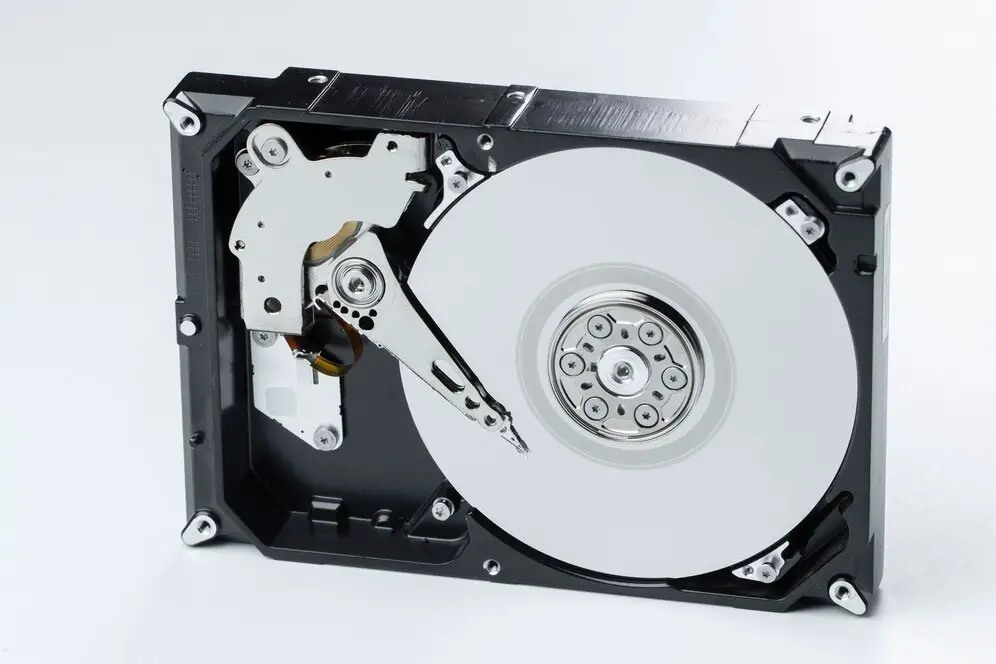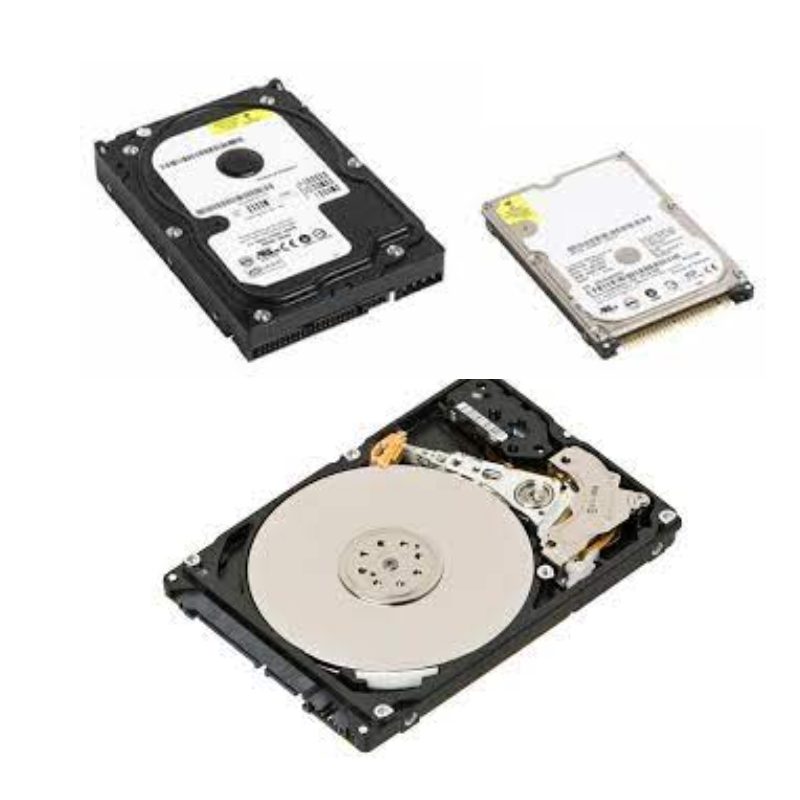Luckily, the answer is a loud Yes! If it is compatible, there is no harm in using a laptop hard drive on a desktop computer. But how? connect the SATA Data and the SATA Power cables like you would with a standard desktop hard drive.
The same idea, however, on a laptop cannot use a desktop’s hard disc. This is because 3.5′′ Hard drive form factors are incompatible with laptops.
In this article, I will discuss some advantages and disadvantages of a laptop hard drive on a desktop computer before using it.
Table of Contents
Important Advantages And Disadvantages Of Using A Laptop’s Hard Disc On A Desktop
Let’s see some of the advantages first:

1. Laptop Hard Discs Are Often More Compact And Less Expensive Than Desktop Hard Drives
Typically, laptop hard drives are less expensive and smaller than desktop hard drives. Because they use less storage space than desktop computers. Furthermore, because laptop CP speeds are typically lower than desktop computers, less storage space is required.
2. Some Desktop Hard Drives May Perform Faster On A Laptop
Hard drives in laptops sometimes outperform those in desktop computers. This is so because most laptops use the Serial ATA interface, which offers higher data transfer rates than the earlier Parallel ATA standard.
In addition, laptop hard drives often spin more quickly than their desktop counterparts, which also helps explain why they function more quickly.
Make sure the hard disc you choose has a Serial ATA interface and a high spin rate if you want the fastest hard drive for your laptop. The price of these drives will also be higher than their slower equivalents, so bear that in mind.
3. Desktop Hard Drives Are Smaller Than Laptop Hard Drives In Terms Of Storage Capacity.
Desktop hard drives frequently have less storage space than laptop hard drives. This happens because laptops often have fewer storage requirements than desktop computers due to their smaller size.
Many laptops also use smaller solid-state drives, which consume less power than conventional hard drives.
Well, you can see how using a laptop hard drive on a desktop can be advantageous. There are some drawbacks to it as well.

1. Hard Drives In Laptops Tend To Operate More Slowly Than Desktop Computers
Although laptop hard drives are often slower than desktop hard drives, you can make a few changes and take measures to speed up your laptop’s hard drive. Regularly defragmenting your laptop’s hard disc is one technique to speed it up.
Adding a solid-state drive can considerably increase the performance of your laptop’s hard disc. Finally, watch out for running too many apps simultaneously, as this might also slow down your hard drive.
2. Less Storage Space Is Available On Laptop Hard Drives Than On Desktop Hard Drives
Generally, desktop hard drives offer more storage space than laptop hard drives. Additionally, the slower hard drives found in laptops compared to desktop hard drives can reduce storage capacity.
How Can You Connect Your Laptop Hard Drive To A Desktop
Most laptops have an integrated hard drive, but if you have a desktop computer, you might need to buy an external hard drive. These are generally available at your local electronics store. Once you’ve obtained your hard drive, you’ll need to attach it to your laptop.

This is how you do it:
- Please turn off your laptop and remove the AC adapter from it.
- Find where your hard drive is. Your laptop should have it on the back or side.
- Take out the hard drive. You will need to unscrew a small panel to access the hard drive.
- Connect your laptop to the hard drive. It must be plugged into the laptop’s hard drive port, typically found on the side.
- Turn on your laptop and launch Disk Management after the hard drive has been plugged in. Enter “partition” into your computer’s search box in the bottom left corner to get started. Next, select “Create and Format Hard Disk Partitions.”
- It will open a new window. Your hard drive should be visible here (it will most likely be labeled “Disk 1”).
Conclusion:
Suppose the desktop computer you use has insufficient storage. And If you keep saving large files on your computer, you may need to upgrade sooner. You could use a laptop hard disc as an external drive since this might be a practical solution.
However, laptop hard drives often operate more slowly than desktop hard drives. I hope you have found the answers, but if not, feel free to ask further questions.

